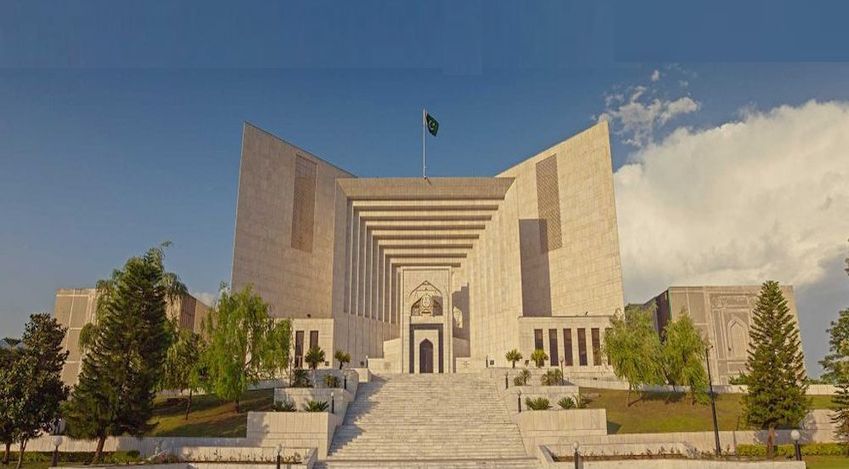Execution Proceedings are confined to the Implementation of Judicial Decisions and do not extend to the Examination of Previously Adjudicated Substantive Issues --- Supreme Court of Pakistan
Islamabad 07-10-2024: In a significant ruling, the Supreme Court of Pakistan has dismissed a petition challenging the execution proceedings related to an eviction order, affirming that unchallenged judicial orders remain enforceable and legally valid unless overturned by a Competent Court. The judgment was delivered by a bench comprising Mr. Justice Syed Hasan Azhar Rizvi and Mr. Justice Aqeel Ahmed Abbasi in [Civil Petition No. 662-K of 2024], concerning the tenancy dispute between Petitioner and Respondent.
The petitioner had sought to challenge the execution of an eviction order passed by the Rent Controller of Karachi. The eviction was based on grounds of non-payment of rent and the respondent’s bona fide personal need for the property in question, comprising Shops No. 6 and 7 located in Orangi Town, Karachi. The Rent Controller’s order was upheld by the High Court of Sindh, leading to the petitioner’s attempt to challenge the subsequent execution proceedings before the Supreme Court.
The dispute originated from a tenancy agreement entered in 1980 at a rental rate of Rs. 200 per month for each shop. In 2017, the respondent, Abdul Ali, filed an application for the fixation of fair rent under Section 8 of the Sindh Rented Premises Ordinance, 1979. The Rent Controller fixed the fair rent at Rs. 5000 per month, which was later reduced to Rs. 3000 per month by the Appellate Court. The petitioner defaulted on the revised rental payments, prompting the respondent to file for eviction under Section 15 of the Ordinance.
The eviction application was allowed on 23rd January 2024, and the petitioner was directed to vacate the premises. This order was not challenged by the petitioner. As a result, the respondent filed for execution of the eviction order, which was also granted by the Rent Controller. The petitioner then approached the High Court of Sindh, challenging the execution order, but the constitutional petition was dismissed. The present petition before the Supreme Court sought to challenge the High Court’s decision.
The Supreme Court, in its judgment, highlighted that the petitioner had only challenged the execution proceedings and not the original eviction order. Since the original order remained unchallenged, it continued to be legally enforceable. The Court clarified that execution proceedings are limited to the enforcement of judicial decisions and do not permit a re-examination of the underlying case’s merits.
“It is a well-established principle that within the framework of execution proceedings, the Courts are precluded from deliberating on the merits of the underlying case. Execution proceedings are confined to the implementation of judicial decisions and do not extend to an examination of the substantive issues that may have been previously adjudicated,” stated the judgment.
The Court further noted that its jurisdiction under Article 185(3) of the Constitution of Pakistan does not extend to revisiting factual findings of the High Court unless it can be demonstrated that such findings are perverse or against evidence. The Court found no such infirmity in the High Court’s order and dismissed the petition.
This decision reinforces the principle that execution proceedings are solely for the enforcement of valid and legally binding orders and cannot be used as a backdoor to challenge the original orders themselves. It also upholds the finality of unchallenged judicial decisions, ensuring that they are implemented without unnecessary delay or litigation.
The judgment has significant implications for tenants and landlords alike, particularly in matters of eviction based on default in rent payment and bona fide personal need. The ruling confirms that tenants must contest original eviction orders at the appropriate forum rather than attempting to delay implementation through execution proceedings.
The Supreme Court’s dismissal of the petition in [Civil Petition No. 662-K of 2024] sends a clear message about the enforceability of unchallenged eviction orders and the limited scope of execution proceedings. The Court’s judgment not only affirms the decisions of the Rent Controller and the High Court but also establishes a precedent for future cases involving similar disputes.
The petitioner’s plea was found to be devoid of merit, and the Court’s decision upholds the eviction order, bringing an end to a lengthy legal battle over the tenancy of the shops in Orangi Town, Karachi.
Powered by Froala Editor








